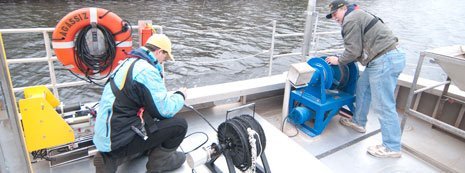Mapping the world’s free-flowing rivers
Document Type
Article
Publication Date
5-8-2019
Abstract
Free-flowing rivers (FFRs) support diverse, complex and dynamic ecosystems globally, providing important societal and economic services. Infrastructure development threatens the ecosystem processes, biodiversity and services that these rivers support. Here we assess the connectivity status of 12 million kilometres of rivers globally and identify those that remain free-flowing in their entire length. Only 37 per cent of rivers longer than 1,000 kilometres remain free-flowing over their entire length and 23 per cent flow uninterrupted to the ocean. Very long FFRs are largely restricted to remote regions of the Arctic and of the Amazon and Congo basins. In densely populated areas only few very long rivers remain free-flowing, such as the Irrawaddy and Salween. Dams and reservoirs and their up- and downstream propagation of fragmentation and flow regulation are the leading contributors to the loss of river connectivity. By applying a new method to quantify riverine connectivity and map FFRs, we provide a foundation for concerted global and national strategies to maintain or restore them.
Publication Title
Nature
Recommended Citation
Grill, G.,
Lehner, B.,
Thieme, M.,
Greenen, B.,
Antonelli, F.,
Tickner, D.,
Sáenz Cruz, L.,
&
et. al.
(2019).
Mapping the world’s free-flowing rivers.
Nature.
http://doi.org/10.1038/s41586-019-1111-9
Retrieved from: https://digitalcommons.mtu.edu/cee-fp/106


Publisher's Statement
© 2019 Springer Nature Publishing AG. Publisher's version of record: https://doi.org/10.1038/s41586-019-1111-9